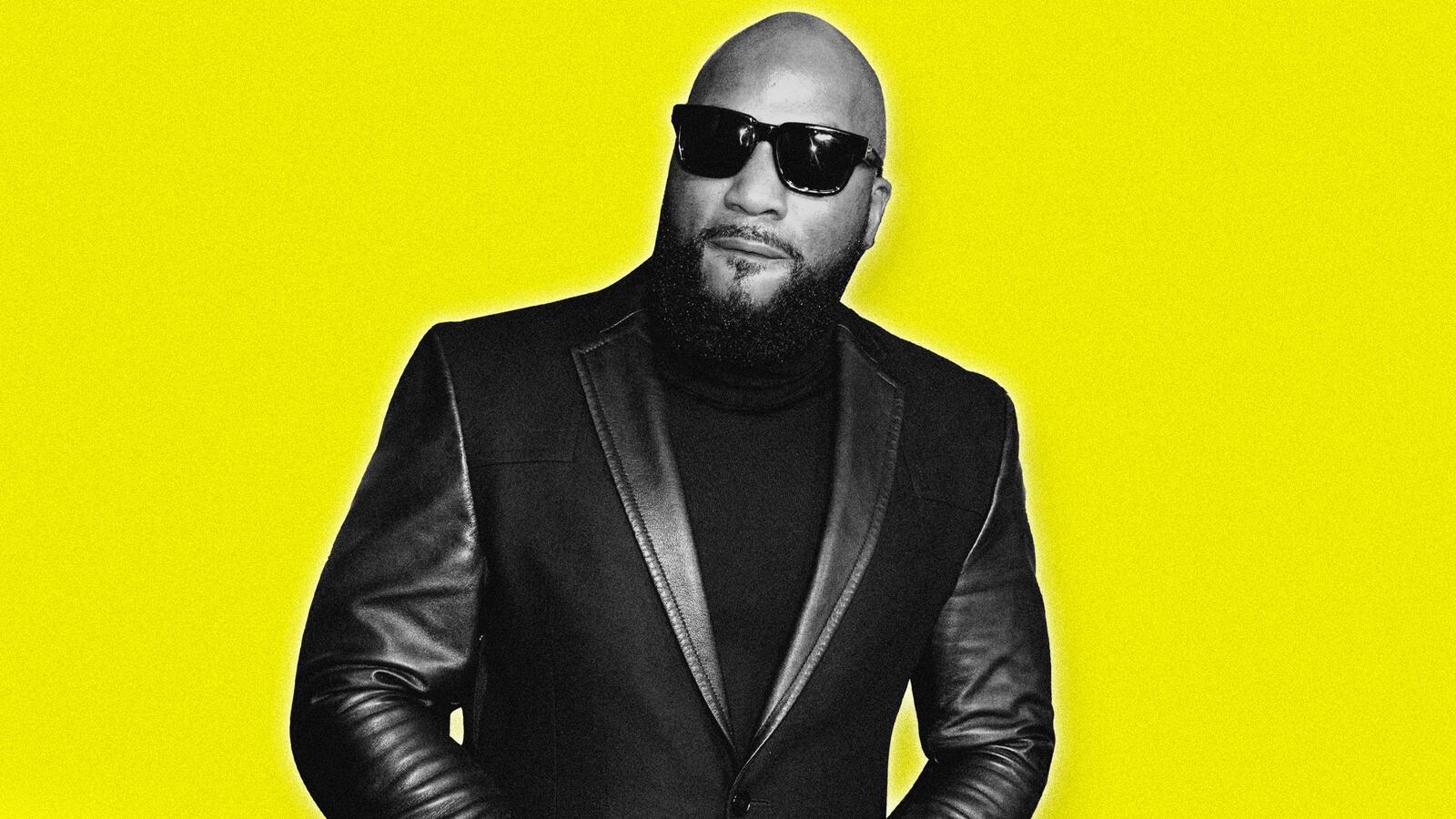Many entertainers maneuver within their respective industries to fine-tune their craft, elevate their celebrity status, and catapult their careers to unimagined heights.
Others not only hone their talents, but also use their stardom as part of a plan to uplift people without a platform, as a way to give back to communities that helped raise them.
Rapper and entrepreneur Jay “Jeezy” Jenkins—the Grammy-nominated, platinum-selling artist notorious for pioneering trap music—started the Street Dreamz Foundation in 2001 to bridge gaps widened by systemic racism and bring opportunities and resources to Black communities. Through the non-profit organization, he provides access to wireless internet and services so kids can keep up with the latest technology. The organization helps to eliminate food deserts, which are prevalent in underserved communities where residents have few healthy food choices. The Street Dreamz Foundation teaches impoverished communities the power of entrepreneurship and financial literacy.
In addition to the foundation, Jenkins gifts bookbags with school supplies to children, sends bicycles to keep kids active and to give them their own form of freedom and transportation, and donates supplies to victims of natural disasters. He also doles out children’s toys at Christmas, and organizes voter registration drives.
He’s received Atlanta’s highest honor, the Phoenix Award, for his charitable work.
“I always said, if I was ever in a position of leadership that I want to make sure that my moral compass is what it’s supposed to be,” Jenkins said in a Black History Month interview with The Daily Beast this week.
“I realized at a young age that I was a sponge, and I realized I had an ability because I’ve always felt like the real wealth, and the real information, and the real data is with older people… which gave me more insight to things as a young man,” he explained.
Jenkins shared information he learned from older people in his family and neighborhood, which in turn caused him to become a source of wisdom with his peers.
“That was a superpower of mine. Once I started to figure out the music part, I started to put a lot of that in the music. I was basically telling you what I learned, and what I knew to be true, right? Again, taking all this information that I got, processing it, and then giving it back to the culture in a more digestible form,” he told The Daily Beast. “That’s my superpower: Getting what you need out of that [information] and then putting it in some type of art form.”
Jenkins has come a long way from his humble beginnings in Hawkinsville, Georgia—nearly two hours outside Atlanta—where he hustled illicit drugs from an early age and tried to navigate a life where family and some of the people closest to him were also caught up and relied on the trapping game just for the sake of survival.
“When you don’t have a lot, you have to fight for it,” Jenkins said. “That’s why you ever notice all the violence in the neighborhoods and the ghettos and the projects and those places because we’re all fighting to live. We’re fighting to eat. We’re fighting to survive.”
Jenkins explained that his grandmother—the “glue” of his family—taught him to have compassion, to use his voice for others who didn’t know how to speak up for themselves.
“She always told me to take care of my people. I didn’t really understand what that meant until I got older,” he said. “I started to see that means: Speak for your people the best way you know how… and make sure you stand up for them.
“That’s why a lot of my projects, when I got in the music space was like, Thug Motivation… Trap or Die… The Inspiration and The Recession because I was speaking to the culture that was demonized, that was put in this box where we [were told] we wasn’t going to be anything.”
Jenkins said if he leads by example, then people from a similar background can learn to live life “even better.”
“I would have never thought in a million years that I can affect millions of people. I would have never thought that. But when I affected the first person, I took that responsibility seriously,” said Jenkins. “I have been unintentional with my influence before. But after seeing what effect it had on my people, I had to adjust that. I had to pivot because now I got to take this responsibility seriously, right? Because it is a form of leadership. No matter how you cut it, no matter what you say, when it’s all said and done, people gonna be like, ‘How did he contribute?’”
Jenkins released his memoir, Adversity for Sale, in August as a series of motivational lessons to help others coming from poverty. He shared his life story to help inspire others to find success in spite of the cards their lives had been dealt.
In December, Jenkins was a guest speaker during a fireside chat at Black Enterprise’s “40 Under 40” celebration in New York—an event that highlights young Black leaders in media, arts and entertainment, fashion and beauty, political activism, sports, tech, finance, and entrepreneurship. Jenkins, who has utilized his rap career to dive into business ventures and real estate and to build his name outside of being just an entertainer, revealed that his purpose was always greater than just his music career.
“I was given a gift, and it was bigger than music,” Jenkins told an elegantly dressed crowd about his purpose as a messenger to Black communities. “It was about life. It was about evolution. And once I figured that out and started to lean into my purpose, it was so much easier for me to grow because I had to give myself permission. When you see me, I walk in example of where I’m trying to go. I’m not perfect by far, but I’m going to walk in that path because that’s the path God gave me.”
Jenkins explained that music was his outlet, that the songs he wrote were a journal of his life and he realized how many other people had dealt with similarly hard upbringings. He hit some hurdles along the way, and with his knowledge, he wanted to share his experiences with others so they wouldn’t have to endure the same struggles.
“I just wanted to be a vessel to show cats you don’t always have to have crutches to do what you do,” Jenkins said at the Black Enterprise event. “When I’m able to express myself and connect with my people and show them another way, then that means more to me than any business. And that’s how I was able to stay sane, because I knew I had a bigger purpose than just selling records. I knew that this was a small piece to who I was becoming, where I was going. I just hadn’t navigated well.”
Even during his NPR Tiny Desk performance released Wednesday, Jenkins made it a point to include call-and-response from the crowd as he performed a set of songs to remind the Black community that he still sees them, he’s still their champion, and stories surrounding Black American resilience forever need to be told.
“The one thing I loved, I was able to connect with my people, my culture because we spoke the same language,” Jenkins told the crowd.
In his interview with The Daily Beast, Jenkins acknowledged that Black communities continuously face adversity due to systemic discrimination, and unity needs to be established so that curses can lessen throughout the generations.
“When you look at the very few of us that made it out [the hood]… that’s why we have to give back. And that’s why we have to at least lead by example because it’s like, who else are you going to follow?” Jenkins asked. “Everybody’s not a basketball player. Everybody’s not gonna be a doctor. Everybody’s not gonna be a lawyer. But you know, there’s this new thing that everybody loves now and it’s being an entrepreneur because it’s like, if you can hold it in your head, you can hold it in your hands.”







